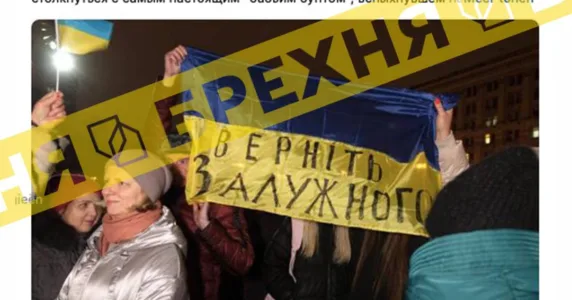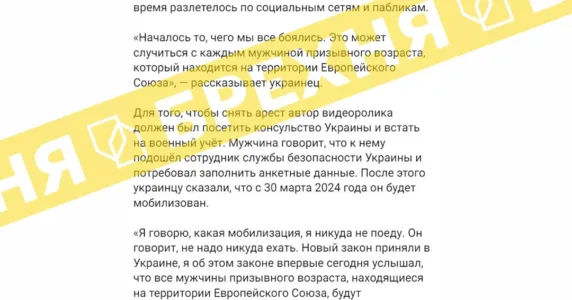Navigation and useful materials
On February 14, the Ukraine-Ukrinform Media Center delved into the topic of “Two years of information war: Conclusions and prospects.” The discussion also focused on the publication by the Center for Strategic Communication titled “How the Russian information ship went f.. Propaganda Narratives During a Full-Scale War.”
Ihor Solovei, the Head of the Center for Strategic Communication, shared his conclusions regarding the main trends observed in the aftermath of two years of information warfare since the onset of a full-scale invasion.

“The first conclusion is that the main tasks of Russian propaganda, which it set at the beginning of a full-scale invasion, have not been fulfilled.
The first task was to persuade the Ukrainians to avoid resistance. We remember how, in the media during the initial days of the war, there was a focus on military exercises conducted near our borders. All this was done to show the “invincibility of the Russian army” and persuade Ukrainians to believe that resistance is impossible.
There was also a goal to split Ukrainian society – we all remember Putin’s appeal to Ukrainian servicemen.
The West was threatened with the alleged development of chemical weapons, “biolabs,” and other horrors. Thus, Russian propaganda wanted to cut off Ukraine from Western assistance, but this did not happen, so the task can be considered unfulfilled.”
Ihor Solovei also stressed that the publication was prepared not only for history, but also for law enforcement agencies that investigate Russian crimes – they will form the basis of cases against Russian propagandists.
“I want to note that the story is not over, the war continues, and we just now see that the Russians have local successes in certain areas. And in all these events, there is a contribution of the Russian propaganda machine.”
Read the introduction to the book in English here
Taras Shevchenko, the Deputy Minister of Culture and Information Policy of Ukraine, emphasized the importance of the institutional component in combating propaganda and disinformation for the Ministry:
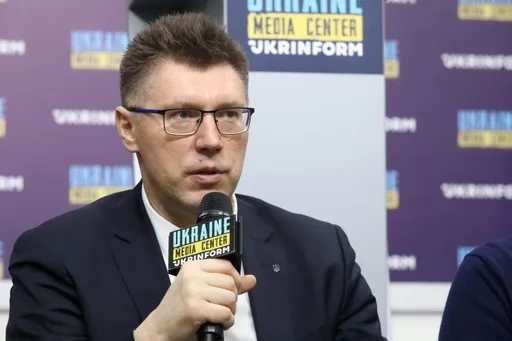
“This component was precisely to create the Center for Strategic Communication and Information Security as an institution, to have a team of experienced people, to work in different directions. The second point involves the information security strategy, encompassing counteraction to disinformation, media literacy, strategic communication, and various positive legal aspects. These include the protection of journalists’ rights, openness of the state and authorities.”
Maksym Maiorov, an employee of the Center, highlighted that at the onset of the full-scale invasion, the Center transitioned to round-the-clock operations and promptly responded to unfolding events. One of the responses was the daily publication of digests of Russian propaganda, which formed the basis of the publication:
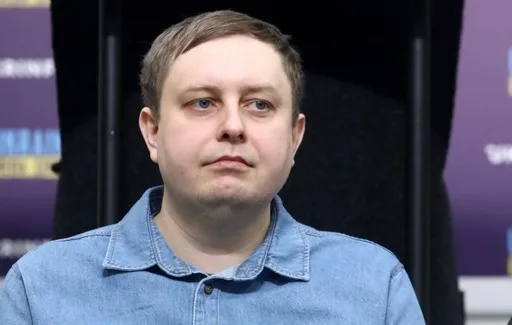
“Every day there was a debunking of Russian narratives, an overview and context of why they exist and why this happens. The materials of this book are actually a chronicle that covers 22 months – from February 2022 to November 2023. Probably, if we put everything under the cover, it would be 4 times thicker.
There is an excerpt, an adapted version of our digests. Of course, not all the materials are included here, as during our study of Russian propaganda, we observed that the main motives and plots tend to be quite repetitive. The topic of “biolabs” or “dirty bomb” appears and there is no point in repeating it.
It reflects topics, trends and dynamics, but the main thing is to show the main directions of Russian propaganda. However, the book starts with analytical material, and we’ve chosen to give readers the chance to acquaint themselves with the essence, a summary of our two years’ experience working with propaganda.”
Andrii Yusov, the representative of the Main Directorate of Intelligence of the Ministry of Defense of Ukraine, emphasized that the publication by the Center is an important and serious product. Having one voice in countering Russian propaganda is a crucial component that has enabled us to debunk and prevent the spread of most Russian fakes. This effort ensures that they do not gain traction among Ukrainians and are not widely disseminated globally:
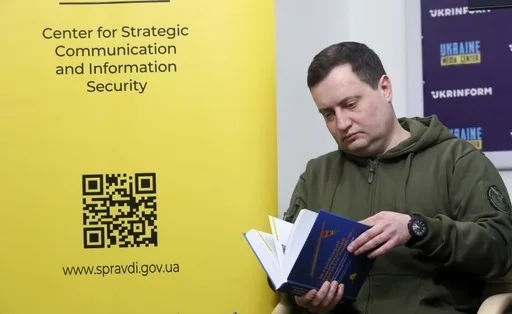
“Actually, what are such books for? Russian myths are repeated many times, regularly, and even from generation to generation. This means that we need to refute them regularly, sometimes repeating the same arguments. That is why I believe that such publications, in English, Chinese, Spanish, and Arabic, will contribute significantly to the fight against disinformation. Russia often exploits the fact that countries in the Global South lack sufficient information about Russian crimes, fake news, and the invasion of Ukraine.
The information struggle will persist, focusing on two key areas. Firstly, the Russians attempt to influence Ukrainians, aiming to tear the country apart from within and destabilize the front. Secondly, there is external manipulation, with “the situation is not ambiguous,” “biolabs” nonsense, and alleged “terrible crimes of Ukrainians.” The challenges remain extremely serious, but the fact that Ukraine is not only holding on but also fighting back and winning against the enemy’s disinformation attacks is already very encouraging.”
You can view the broadcast of the event here.
If you have found a spelling error, please, notify us by selecting that text and pressing Ctrl+Enter.
